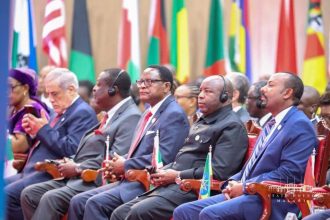Malawians should write more
Malawi’s education system, colleges in particular, lacks textbooks that are written by Malawians. Most learners and institutions rely on imported textbooks, which are feared to be in sharp contrast with the needs of Malawi as far as development is concerned. Does the country need a foreigner to write the emerging issues in Malawi or the history of the country’s democracy? HOWARD MLOZI engaged Chancellor College linguistics and language professor Pascal Kishindo, who is a director for Centre of Language Studies and to shed more light on textbook writing in Malawi.
HM: How can you describe the situation of textbook writing in Malawi?

PK: Academic and non-fiction writing, particularly textbook writing for colleges, is not really at a level where we want it to be as Malawi Union of Academic and Non-Fiction Authors [Muana]. If you are familiar with the college publishing industry, you will see that there is not much that is written for colleges by Malawians. What you get are imported textbooks that are written by foreigners. If there are any written by Malawians, then they are just handful. The situation is different with primary and secondary schools’ book industry where local authors contribute much. However, this is the reason why we encourage all academic and non-fiction authors in the country to tackle college textbooks. In fact, there is a whole market for writing textbooks for college in the country. What is important is to research and come up with subjects that are relevant.
HM: Why do you think the situation is like this? Should we say Muana members fail to research and tackle complex topics suitable for colleges?
PK: The reasons might be many, but one of the issues is that, unlike colleges, there is Malawi Institute of Education (MIE) at Domasi which encourages writers and publishers to supply textbooks for secondary schools. So, there is already market waiting for publishers to produce textbooks for secondary schools. MIE is a conduit of these kinds of books. Whereas, colleges are not being controlled by a central institution which can demand textbooks of particular subjects.
HM: So, do you the influx and use of foreign textbooks have any impact on Malawi’s education system or development as a whole?
PK: Yes, it does have an impact because if you are dealing with the textbooks that are foreign you find that the content of the books is slanted according to their environment. For example, if you buy a textbook on economics, the slant of the economics will be about a country the author is familiar with. Again, if you take a history book on Malawi, for example, but written by a foreigner his or her interpretation will be based on what they know about Malawi through the lens of the country they come from. So, in every work that is imported, there is a mark of the one who is writing. However, this does not paint a good picture when you allow others to interpret your situation. But we are not saying imported materials are bad. They should simply be relevant to Malawi.
HM: So what does this mean?
PK: It means Malawi is failing to promote her own interests because its citizens do not write. Malawians should cultivate a culture of writing because they are in a good position to tell their issues better. By the way, Malawi has plenty of issues and stories that need to be told. So, local writers and publishers should make their subject relevant and visible. Writing is not about white people, but everyone including Malawian authors.
HM: Do Malawian Authors including members of Muana have the capacity to write textbooks for colleges? May be you need a PhD. Holder to become a member of Muana.
PK: Yes, the capacity is there, but people need to know the reasons why they should write in the first. In other words, they should have passion for writing and guts to seal the gap they see in textbook writing industry. Authors also need training in order to learn the craft.
HM: Any last word?
PK: I am urging people to join Muana so that together we help to develop Malawi through writing interesting material which can promote the culture of reading. Anyone who feels has something to contribute can join Muana because they are different levels of writing. n





